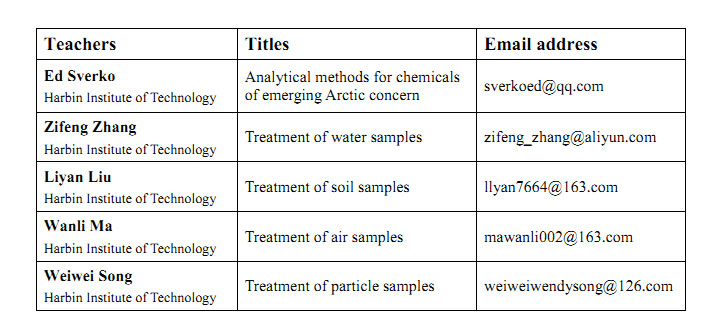Summer Programs
Organizers:
Harbin Institute of Technology (HIT), China
Association of Sino-Russian Technical Universities (ASRTU)
The University of the Arctic, UArctic-HIT Training Centre

Co-Organizers:
Norwegian University of Life Sciences & University Center in Svalbard, Norway
North-Eastern Federal University, Russia

About program
Compared on a global scale, circumpolar regions are currently experiencing the most dramatic environmental change related impacts, which particularly impacts High North communities and complex ecosystems. Changes include retreat of sea- and land fast ice coverage, increased erosion at coast-lines, loss of permafrost damaging buildings and other infrastructure as well as ecosystem changes. However, these changes will also make the region increasingly accessible for economic development, e.g., resource extraction and tourism. Thus, the national regulators, as well as local communities and municipalities in the circum-Arctic regions are facing tremendous challenges when it comes to adjustments of environmental regulations and maintenance of infrastructure and planning of new technological solutions on restricted budget frames.
As young generations and future experts in different disciplines and fields from China and the eight Arctic countries, our goals on the Arctic are to understand, protect, develop and participate in the governance of the Arctic. To understand Arctic is the first step for suitable and sustainable strategies along this line. To understand the Arctic is to improve the capacity and capability in scientific research on the Arctic, to pursue a deeper understanding and knowledge of the Arctic science, and to explore the natural laws behind its changes and development, thus to create favorable conditions for us to better protect, develop, and govern the Arctic.
Therefore, the International Arctic Summer School on “To understand Arctic: Environment and Ecosystem” will serve as academic platform for undergraduate education on anthropogenic impacts on Arctic environment and ecosystem. We invite undergraduate students from all relevant disciplines and research fields from China and the eight circum-Arctic nations to Harbin Institute of Technology, the People’s Republic of China to attend the Summer School. The Summer School aims at convey academic knowledge and modern strategies for a profound understanding, protection, development and active participation in the comprehensive sustainable governance of the Arctic region. The first step for suitable and sustainable strategies along this line is to understanding Arctic; and a comprehensive scientific understanding of the environmental, societal and regulative processes in Arctic is mandatory.
The Summer School will provide up-dated scientific knowledge on all relevant aspects of Arctic processes and the anthropogenic impact on these delicate environmental interactions. Relevant lectures will be delivered by international renowned experts with long-term experience in their respective fields of expertise. Furthermore, in follow-up discussions and seminars, opportunities will be given to discuss and elucidated detailed aspects on Arctic anthropogenic impacts on its environment and ecosystem.
This is the first Summer School to be held by the International Arctic Summer School, Harbin Institute of Technology (IASS-HIT-Env-2019) on the topic of “To understand Arctic: Environment and Ecosystem”. The objectives of this Summer School are
1. To establish and strengthen the friendship among students from Chinese and Arctic universities;
2. To understand and discriminate the anthropogenic impact (i.e. pollutants) in the Arctic environment and ecosystem;
3. To understand the currently observed dramatic Arctic climate change and the projected impacts on ecosystems and local communities;
4. To provide training for modern measurement and analysis methods for relevant organic pollutants, including persistent organic pollutants (POPs) and chemicals of emerging Arctic concern (CEACs) and other contaminants;
5. To improve public knowledge and awareness towards Arctic.
All lectures, seminars, discussion and reporting will be provided in English. Please note, all written materials will also be available or will be produced in English language.
Organizing committee members
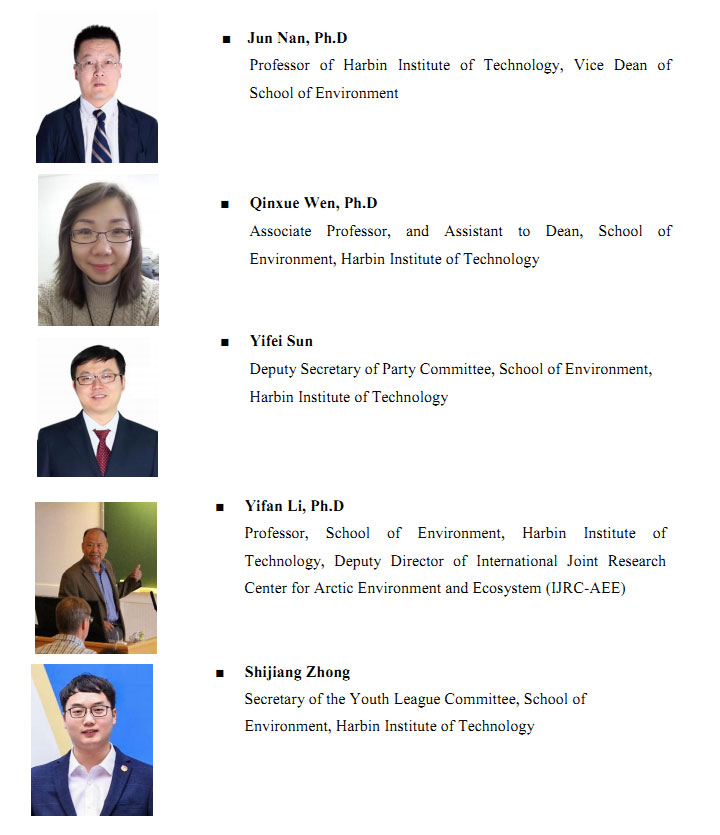
Teachers
Core Courses
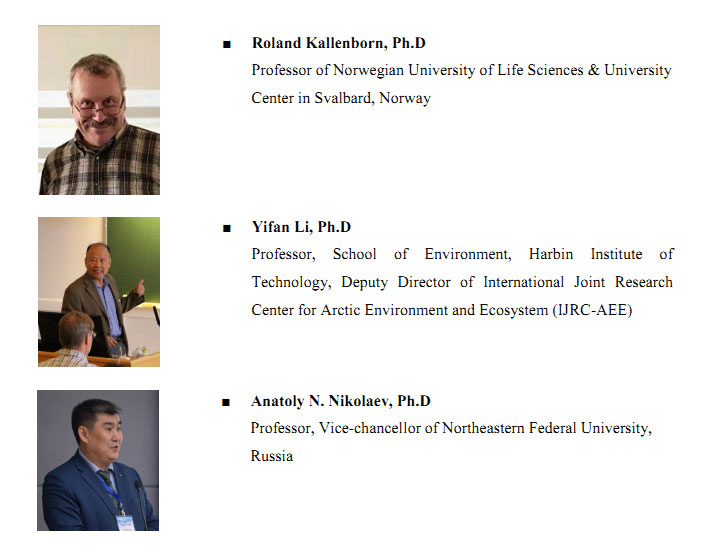
Specialized lectures
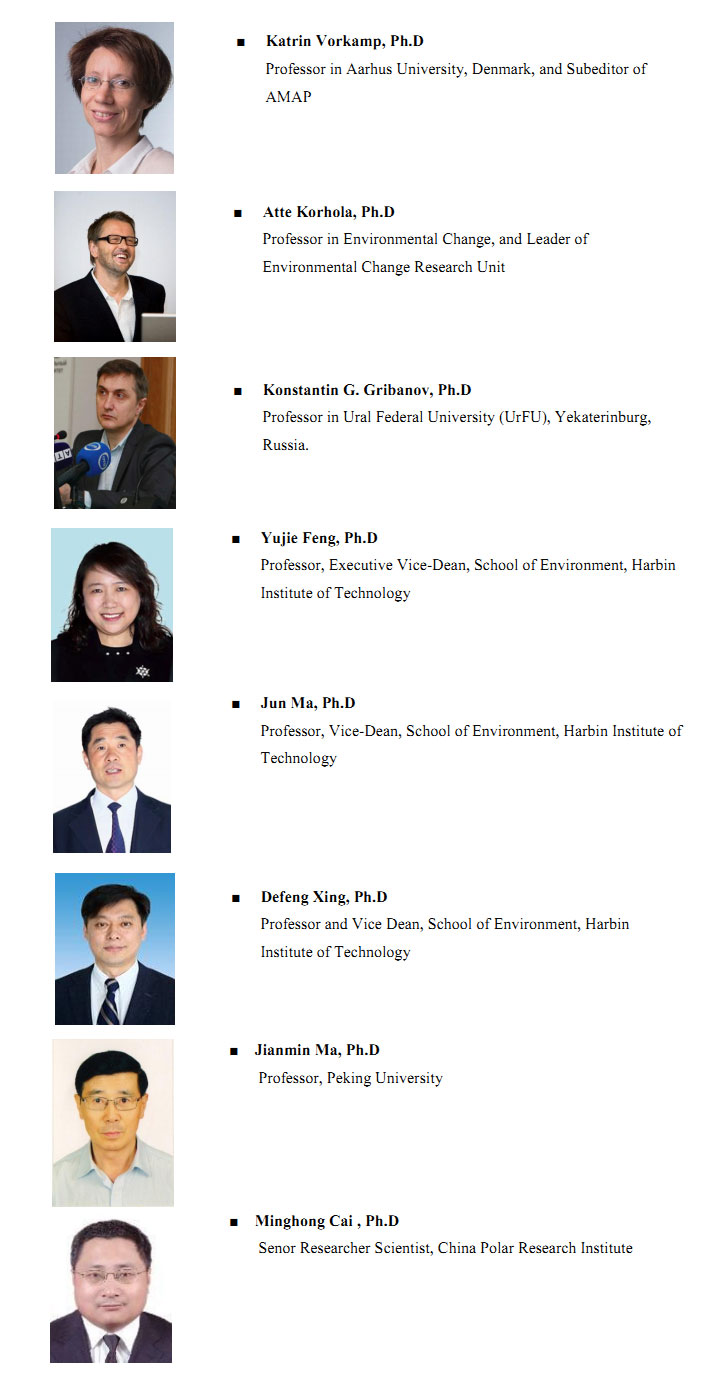
Experiment Courses:
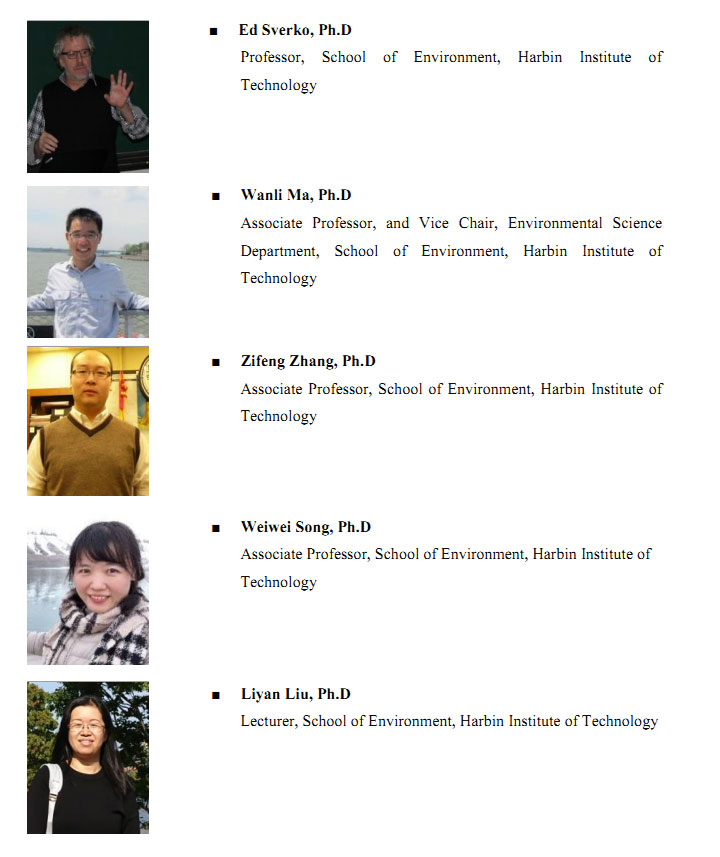
Courses and Lectures
1. Core Courses (8 class hours for each course): (1.5 credits)
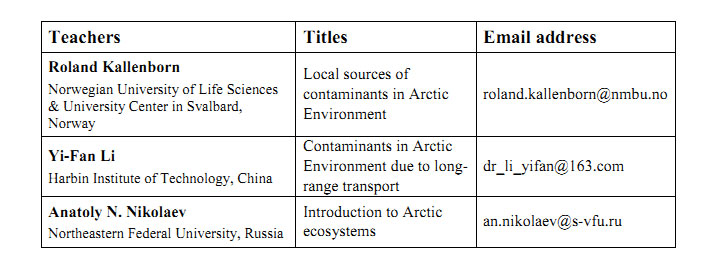
2. Specialised lectures (2 hours for each lecture):(1 credit)
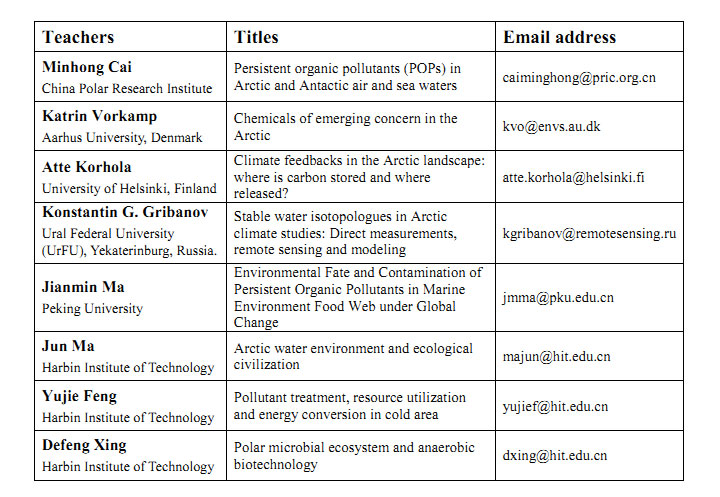
3. Experiment Courses: Analysis technology for the Chemicals of emerging Arctic concern Class hours for laboratory exercises:16 in total (1 credit)
